Never Make This One Food With Your Instant Pot, CDC Says
Making this mistake can lead to serious foodborne illness.
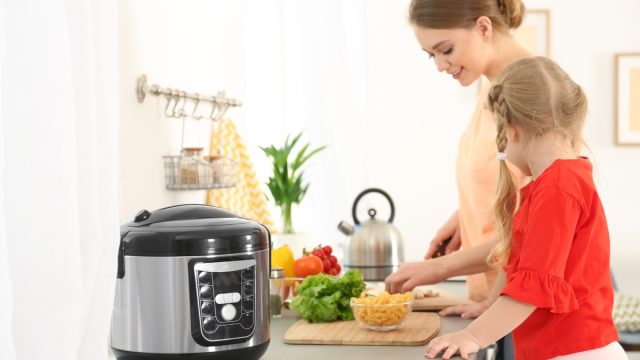
From curry to cheesecake, it seems there's no shortage of creative ways to use your Instant Pot to make delicious, one-pot meals. But experts from the Centers for Disease Control and Prevention (CDC) warn that there's one way that using your multi-cooker appliance could be putting you at serious risk.
The health authority says that misusing these appliances can land you in the hospital by spreading one of the most dangerous foodborne illnesses out there. To make matters worse, many multi-cookers include buttons made specifically for this use, giving customers a false sense of security in using them. Read on to find out which one thing you should never make in your Instant Pot to avoid serious illness, and how to keep yourself safe when preparing this type of food.
RELATED: This Entire Food Company Just Shut Down Following Safety Concerns.
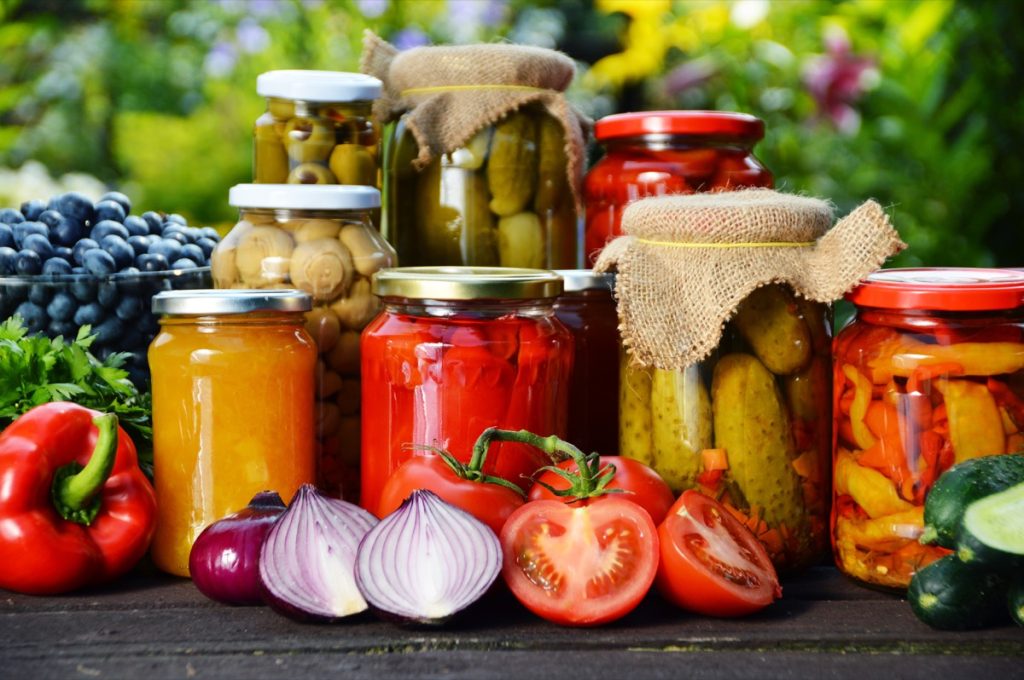
The CDC's guide to home canning warns that the process can cause botulism, a potentially lethal illness caused by a toxin you can't see, smell, or taste. According to the Mayo Clinic, botulism is known to cause difficulty swallowing or speaking, muscle weakness, vision problems, drooping eyelids, difficulty breathing, nausea and vomiting, and in some cases, paralysis. An average of 11o cases of botulism are reported each year, says the CDC, and the condition is always considered a medical emergency.
The health authority warns that home canning and similar processes are behind the bulk of foodborne botulism. "Improperly home-canned, preserved, or fermented foods can provide the right conditions for the bacteria to make the toxin," the CDC explains, referencing a notice from the National Center for Home Food Preservation (NCHFP), a research center at the University of Georgia created in partnership with the United States Department of Agriculture (USDA). These appliances are unsuitable for canning, they say, because they lack adequate research to demonstrate their safety.
RELATED: If You Have These 2 Popular Seasonings, Throw Them Out Now, FDA Says.
Multi-cookers carry several risks in home canning, says the NCHFP.
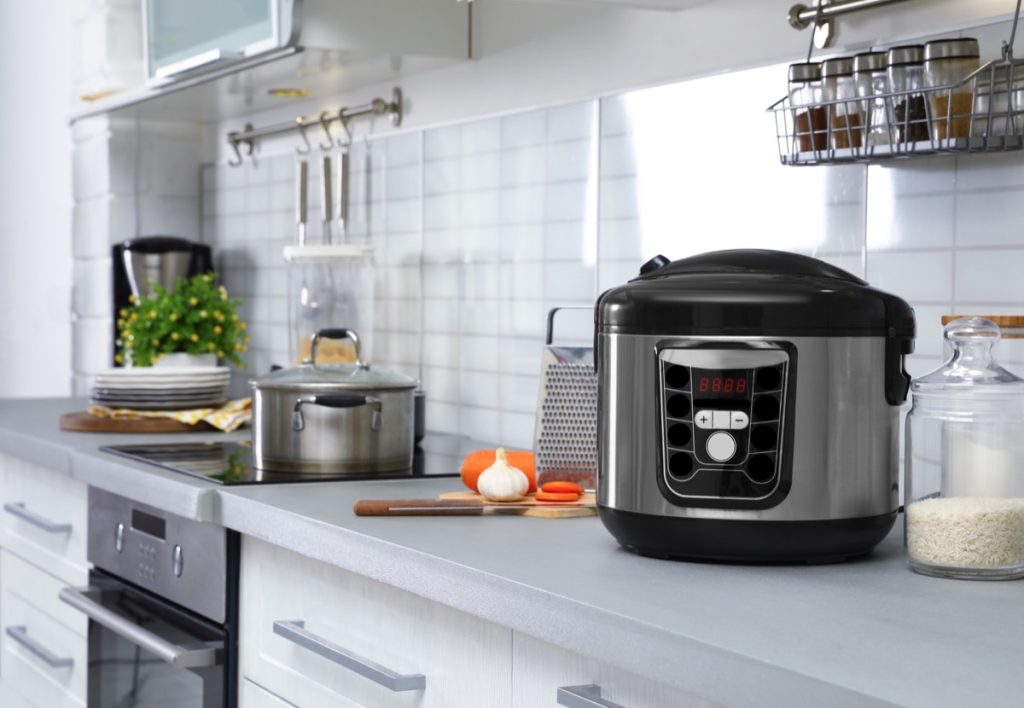
According to the NCHFP, there are several reasons for why you should never use a multi-cooker to make canned foods. The organization—which is considered an authority on safe home canning—says that their "pressure process directions have not been developed for that type of appliance," but instead for "stovetop pressure canners which hold four or more quart-size jars standing upright."
They further explain that you cannot safely can foods unless the heat and pressure within the jars is calibrated to "the temperature inside the canner throughout the processing." Unfortunately, some manufacturers do not take this into account, instead solely focusing on their products' ability to reach "the pressure required for canning."
"No USDA thermal process work has been done with jars inside an electric pressure cooker, tracking the actual temperatures inside the jars throughout the process. It is ultimately the temperature and heat distribution inside the jars that matters for the destruction of microorganism in the food product," the NCHFP explains.
However, many appliances suggest they can be used for this purpose.
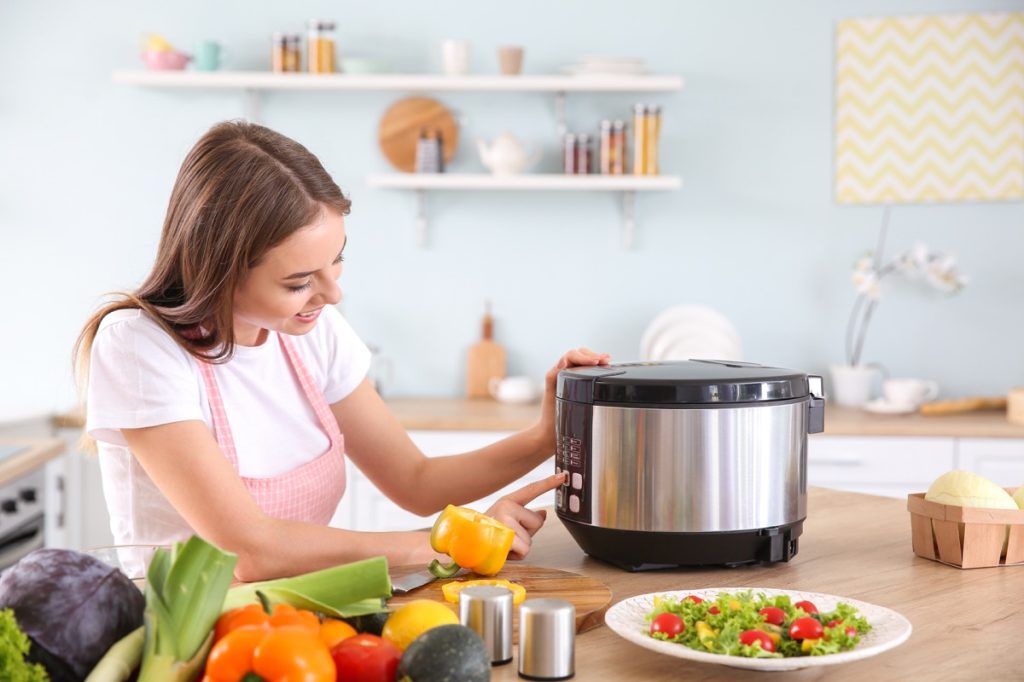
Typically when an appliance has a button touting some particular use, consumers don't think twice about whether it's safe to use. However, the NCHFP points out that several multi-cooker appliances—including the Instant Pot Max—have buttons for "canning" or "steam canning" directly on their front panels, despite their questionable safety.
The organization suggests that more research is needed of Instant Pots and other multi-cookers regarding venting, depressurization, cooling, and the effects of power surges before they can be endorsed for canning use. If you are canning low-acid foods, including the vast majority of vegetables, many fruits, dairy, meat, or seafood products, "Do not use an electric, multi-cooker appliance, even if it has a 'canning' or 'steam canning' button on the front panel," the CDC adds.
For more safety news sent directly to your inbox, sign up for our daily newsletter.
Two specific brands are exempt from this warning.
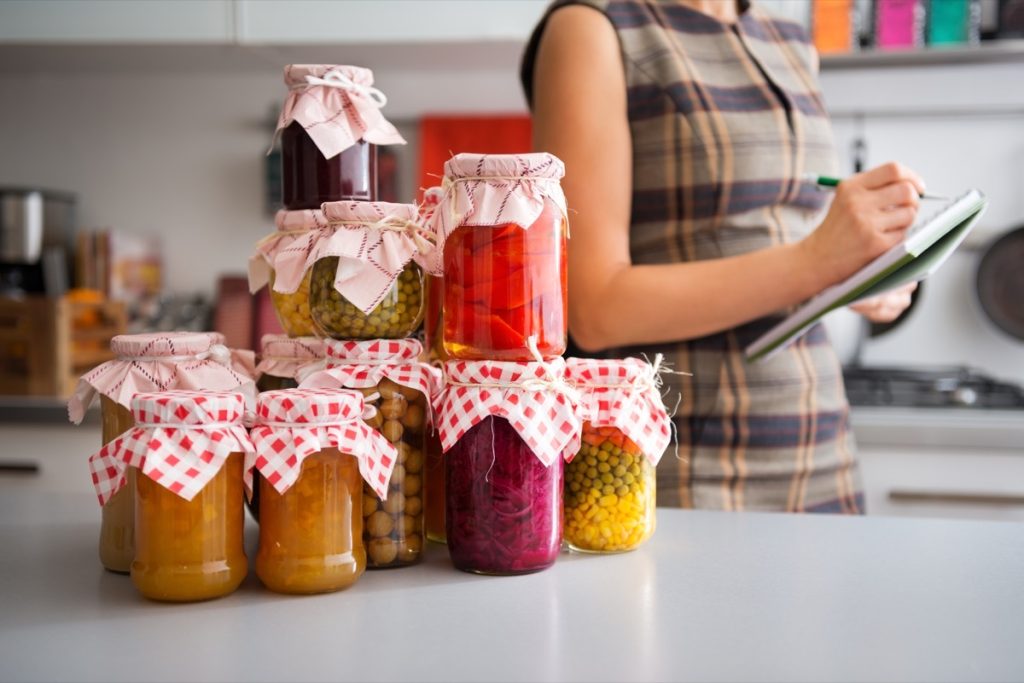
While the CDC and NCHFP aim to shed light on the dangers of home canning with electric multi-cookers, the notice specifies that there are two particular electric cookers excluded from the warning. Both are considered dedicated canning tools and come with their own instructions for home canning. These are the Ball Automatic Home Canner for acid foods only, and the electric boiling water canner sold by Jarden Home Brands.
The CDC notes that any time you can your own food, you should take special care to make sure the canning device is clean, properly vented, adequately pressurized, and approved for canning purposes.
Not sure about whether your home-canned goods are safe to use? "When in doubt, throw it out," the CDC says.
RELATED: If You Bought This at Walgreens, Stop Using It Now, Authorities Say.





















